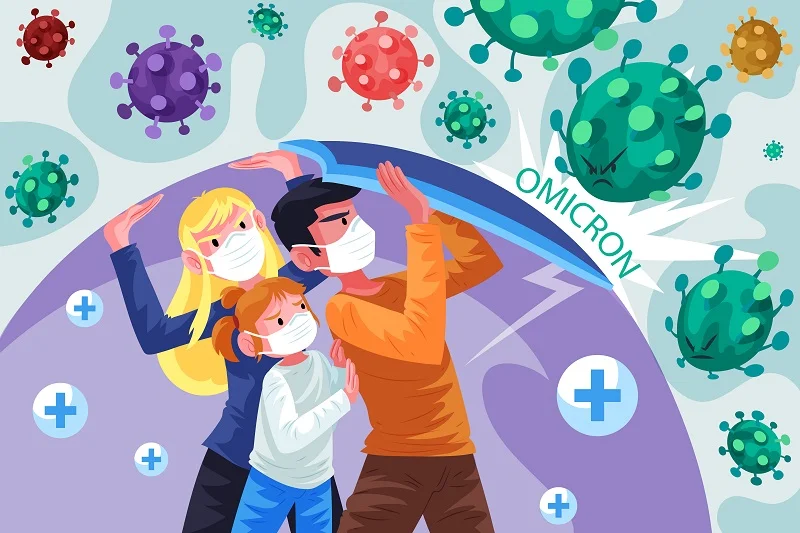Can one Get Re-Infected if one was Covid Positive / One Is Vaccinated - How Does one Get Infected Even After This?
We’re in the third year of the Covid-19 pandemic, and already, the third wave is yet to reach its peak. Infections were declining at the end of 2021, and the world was hoping that the end of the pandemic was maybe near. But that was not the case as the Omicron variant has given new life to the Covid-19 pandemic, which is still raging all over the world.
However, this time around, a large part of the population is vaccinated, and that has significantly reduced severe disease and deaths, although it hasn’t stopped the Covid-19 infection itself. Even doubly vaccinated persons are getting infected with the new variant.
Many people are under the impression that if they’re vaccinated, then they should be totally immune to the disease, or even if they contracted the Covid-19 virus, their naturally induced immunity should prevent a second infection. But this isn’t the case, and such an assumption is wrong.
Let us understand if one can get re-infected with the virus if one is vaccinated or has already been infected once and the reasons for the same.
Covid-19 Infection Even After Vaccinations
A vaccine is something that teaches the human body’s immune system to fight off a threat like a virus or bacteria. It usually contains an element of the original virus which, when introduced in the body, does not cause actual infection but induces an immune response. The immune system now understands the threat, and hence when an actual infection occurs, it is able to fight the virus using the same immune response. This is how most vaccines work.
But one important thing to note is that no vaccine in the world promises 100% protection against infection. And hence, even the Covid-19 vaccine cannot provide total protection against the virus. This is because a virus spreads by replicating itself over and over again. And when doing so, there are some flaws in the replication process. These flaws are called mutations, and these result in certain differences in the genetic makeup of the virus. Mutations can make it difficult for immune systems to detect a virus and initiate a response. And since the Covid-19 virus spreads so quickly, it has seen many mutations leading to different variants of the virus. One vaccine may not be able to protect against all these variants, and hence we see infections even in vaccinated individuals.
Having said that, infections in vaccinated persons have significantly lesser severity of the disease and a low need for hospitalisation and oxygen support. This is because vaccines do provide some sort of protection against new variants, even if they cannot totally avoid an infection.
Covid-19 Re-infections
Another misconception is that a person who already has contracted the virus will not do so again. This has been proven to be false, with many people having suffered the virus two and even three times. Although some viral infections do provide life-long immunity, the Covid-19 antibody response is short-lived after the first infection. Studies show that antibodies from a previous Covid-19 infection may last for up to 8 months only. The reason for reinfections, in this case, is similar to the one mentioned above, which is virus mutations and the emergence of variants. The body may have produced antibodies for a certain variant, but the reinfection may be due to a newer variant that bypassed the body’s immune response.
Therefore, one must not be too casual if one has had a previous infection or has been vaccinated against Covid-19. Reinfection, although rare, can still occur. Proper hand hygiene, masks, keeping distance and reducing personal interactions are the best ways, along with vaccines, to lower the risk of Covid-19 infections.

